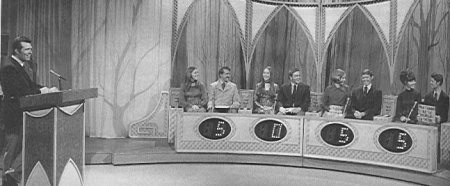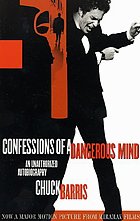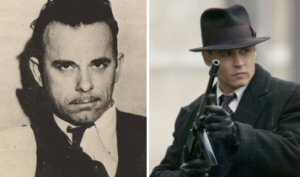Nikola Tesla. Albert Einstein. Ludwig van Beethoven. Chuck Barris.
Chuck Barris?
OK, putting him in the above company is a stretch. All right, it’s ludicrous. But the fact remains: the guy made himself a gazillionaire by coming up with three game show ideas (among others) that made borderline voyeurism acceptable for the middle class, and introduced low-brow, bottom-feeder humor to American television. And now look…voyeurism and bottom-feeder humor are now among the defining benchmarks of American video entertainment. That’s sayin’ somethin’, folks. I’ll go one further and say that without Chuck Barris, we may not have intelligent TV classics such as Jackass, Southpark, and The Simpsons. Gems, all. But I digress.

Barris created three of the most successful game shows of the 60s and 70s: The Dating Game, The Newlywed Game, and The Gong Show. Admittedly, I was a regular viewer of all three.
If you look at Gong Show highlights on YouTube, you’ll find that they are all pretty much unfunny now, although it sure looked like the “celebrity” judges (who the sam hill was “Jaye P. Morgan” anyway, really…) had fun watching those horrible acts and giving out the grand prize of $516.32 (no joke, that was 1st prize). Barris’s on-set behavior was so crazy, it left one Gong Show winner to wonder on his YouTube posting:
How much snow did our good Chuck blow if our good Chuck did blow snow?
Heh. [Cute, although I did not find any references to drug use in any of my research.]
 But there was definitely a method to Barris’s madness. He turned love into a TV commodity. In 1965, he launched The Dating Game, a live version of Mystery Date, where “three eligible bachelors” would answer questions from a girl on the other side of a partition. Based on their answers, the girl would choose one guy to take her on a date, which was arranged by the producers of the show. Cool, eh?
But there was definitely a method to Barris’s madness. He turned love into a TV commodity. In 1965, he launched The Dating Game, a live version of Mystery Date, where “three eligible bachelors” would answer questions from a girl on the other side of a partition. Based on their answers, the girl would choose one guy to take her on a date, which was arranged by the producers of the show. Cool, eh?
Sometimes, the questions were just a *bit* suggestive, although not anything too outlandish. But Barris took care of that problem with The Newlywed Game.
It was probably the first time the word “nooky” was said on network television. And it didn’t take a genius to figure out what they were talking about.

I wasn’t a big fan of the host, Bob Eubanks. He just looked and sounded smarmy to me. But not as smarmy as Barris himself later on, as he stumbled his way through the Gong Show tapings. I wonder how much of that he actually remembers, or if it was all an act, a la Dean Martin.
 But that’s OK. We remember, and YouTube remembers. That oughta provide a lifetime’s worth of embarrassment for him. But all this doesn’t even scratch the surface of his penchant for the bizarre. His “unauthorized autobiography” (ooh that’s hilarious, Chucky baby), Confessions of a Dangerous Mind, secured his weirdsville status pretty much for life. From WikiPedia:
But that’s OK. We remember, and YouTube remembers. That oughta provide a lifetime’s worth of embarrassment for him. But all this doesn’t even scratch the surface of his penchant for the bizarre. His “unauthorized autobiography” (ooh that’s hilarious, Chucky baby), Confessions of a Dangerous Mind, secured his weirdsville status pretty much for life. From WikiPedia:
In his autobiography Confessions of a Dangerous Mind, originally published in 1984, Barris claimed to have worked for the Central Intelligence Agency (CIA) as an assassin in the 1960s and the 1970s. Barris tends to neither confirm nor deny this in interviews. A film adaptation of the book was made in 2002. Directed by George Clooney and starring Sam Rockwell, Confessions of a Dangerous Mind depicted Barris as being responsible for 33 killings. Barris wrote the sequel Bad Grass Never Dies in 2004. The CIA deny Barris ever worked for them in any capacity. After the release of the movie, CIA spokesman Paul Nowack said Barris’ assertions that he worked for the spy agency ‘[are] ridiculous. It’s absolutely not true.'”
I’m partial to Cecil Adams’s take on Barris, at The Straight Dope. Ha.
So yeah. Weird genuis.
Gotta go to Starbucks…breakfast with the boss this morning. Yummy.
FO
 Janet Cooke, former reporter for the Washington Post, went down in flames on this day in 1981, after she had to give back the Pulitzer Prize because she ran a story about an 8-year-old heroin addict that was just plain made-up. I am trying this morning to empathize with her claim that once the initial story ran, the interest was so overwhelming that it was too late to retract it. When the Post checked out claims she made on her resumé — saying she’d studied at Vassar and the Sorbonne, and that she’d won an award with the Toledo Blade — and found them wanting, the jig was up.
Janet Cooke, former reporter for the Washington Post, went down in flames on this day in 1981, after she had to give back the Pulitzer Prize because she ran a story about an 8-year-old heroin addict that was just plain made-up. I am trying this morning to empathize with her claim that once the initial story ran, the interest was so overwhelming that it was too late to retract it. When the Post checked out claims she made on her resumé — saying she’d studied at Vassar and the Sorbonne, and that she’d won an award with the Toledo Blade — and found them wanting, the jig was up.

 But there was definitely a method to Barris’s madness. He turned love into a TV commodity. In 1965, he launched The Dating Game, a live version of Mystery Date, where “three eligible bachelors” would answer questions from a girl on the other side of a partition. Based on their answers, the girl would choose one guy to take her on a date, which was arranged by the producers of the show. Cool, eh?
But there was definitely a method to Barris’s madness. He turned love into a TV commodity. In 1965, he launched The Dating Game, a live version of Mystery Date, where “three eligible bachelors” would answer questions from a girl on the other side of a partition. Based on their answers, the girl would choose one guy to take her on a date, which was arranged by the producers of the show. Cool, eh?
 But that’s OK. We remember, and YouTube remembers. That oughta provide a lifetime’s worth of embarrassment for him. But all this doesn’t even scratch the surface of his penchant for the bizarre. His “unauthorized autobiography” (ooh that’s hilarious, Chucky baby), Confessions of a Dangerous Mind, secured his weirdsville status pretty much for life. From WikiPedia:
But that’s OK. We remember, and YouTube remembers. That oughta provide a lifetime’s worth of embarrassment for him. But all this doesn’t even scratch the surface of his penchant for the bizarre. His “unauthorized autobiography” (ooh that’s hilarious, Chucky baby), Confessions of a Dangerous Mind, secured his weirdsville status pretty much for life. From WikiPedia: Instead, he’s playing Public Enemy #1: John Dillinger. And according to my research, Mr. Dillinger got a bad rap from the American “justice” system, despite robbing dozens of banks and living like a celebrity.
Instead, he’s playing Public Enemy #1: John Dillinger. And according to my research, Mr. Dillinger got a bad rap from the American “justice” system, despite robbing dozens of banks and living like a celebrity. Twenty years ago, Tim Richmond died. Maybe you don’t know who he was (especially if you didn’t follow NASCAR back then, or if, like some of you, you weren’t alive in the eighties), but he put
Twenty years ago, Tim Richmond died. Maybe you don’t know who he was (especially if you didn’t follow NASCAR back then, or if, like some of you, you weren’t alive in the eighties), but he put  Then he got sick. Then he was dead. The cause was complications from AIDS, which, back then, was still a horrifyingly mysterious death curse, surrounded by ignorance, supposition and hysteria. According to what I’ve gathered, Richmond’s efforts to get back into racing after his diagnosis were met with considerable opposition. A guy named Tommy Thompson wrote a rather nice tribute to him
Then he got sick. Then he was dead. The cause was complications from AIDS, which, back then, was still a horrifyingly mysterious death curse, surrounded by ignorance, supposition and hysteria. According to what I’ve gathered, Richmond’s efforts to get back into racing after his diagnosis were met with considerable opposition. A guy named Tommy Thompson wrote a rather nice tribute to him  Witold Pilecki, an officer in the Polish army, willingly infiltrated Auschwitz, posing as a prisoner, in order to gather intelligence on the Nazis and to organize an uprising to free everyone from the camp. The SS had other plans, unfortunately.
Witold Pilecki, an officer in the Polish army, willingly infiltrated Auschwitz, posing as a prisoner, in order to gather intelligence on the Nazis and to organize an uprising to free everyone from the camp. The SS had other plans, unfortunately.